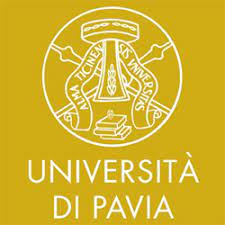University of Pavia

The University of Pavia is one of the oldest universities in Europe. An edict issued by King Lotharius quotes a higher education institution in Pavia as already established in 825. This institution, mainly devoted to law studies, was then chosen as the main education centre for northern Italy. Enlarged and renovated by the Duke of Milan, Gian Galeazzo Visconti, it became the University of the Duchy, officially established as a Studium Generale by Emperor Charles IV in 1361.
Alessandro Volta (1745-1827) is only one of a large group of famous professors who taught at the University of Pavia. To mention just a few, let us recall Girolamo Cardano (1501-1576), Antonio Scarpa (1752-1832) and Camillo Golgi (1843-1926). The “cardanic joint”, a widely used mechanical device, takes its name from the first. Scarpa was professor of anatomy and medicine. Many parts of human anatomy are today named after him, e.g. “Scarpa’s triangle” and “Scarpa’s fascia”. Golgi invented the so called “black reaction”, which, for the first time, displayed the ramified structure of nerve cells. This was the key to open the chapter of neuroscience nowadays advancing so quickly. For this discovery, Golgi was given the Nobel prize in 1906, together with the Spanish Santiago Ramon y Cajal. The “Golgi complex” is only one of the many microstructures which are today named after him. Today the University boasts 24,000 students,both from Italy and from overseas. In 2013, 4,408 students graduated and 639 obtained a post-graduate qualification.
Today Pavia is a Research University, offering a wide variety of disciplinary and interdisciplinary teaching organized in 18 Departments and has study programmes at all levels: Bachelor’s degrees, single-cycle Masters degrees, research degrees, speciality schools and level I and II Masters degrees.
Research is carried out in departments, institutes, clinics, centres, and laboratories in close association with public and private institutions, enterprises and companies.
'
The University of Pavia enjoys a strong tradition of international student and teacher exchanges: bilateral agreements involve, among others, the historical universities of Coimbra, and many universities in Europe, the Middle East, the Mediterranean area, the United States of America, China, Japan and many other countries.
The University of Pavia is in a way unique not only because of its prestigious historical origins and top quality achievements, but also due to its leading and promoting role in the so-called “Pavia System”, characterized by 20 colleges and residences where thousands of students can live, study and play sports. The oldest residences, named Collegio Borromeo and Collegio Ghislieri, were built in the 16th century; more recently other colleges for male and female students were founded through both public and private initiatives.
The University of Pavia enjoys a strong tradition of international student and teacher exchanges: bilateral agreements involve, among others, the historical universities of Coimbra, and many universities in Europe, the Middle East, the Mediterranean area, the United States of America, China, Japan and many other countries.
The University of Pavia is in a way unique not only because of its prestigious historical origins and top quality achievements, but also due to its leading and promoting role in the so-called “Pavia System”, characterized by 20 colleges and residences where thousands of students can live, study and play sports. The oldest residences, named Collegio Borromeo and Collegio Ghislieri, were built in the 16th century; more recently other colleges for male and female students were founded through both public and private initiatives.
